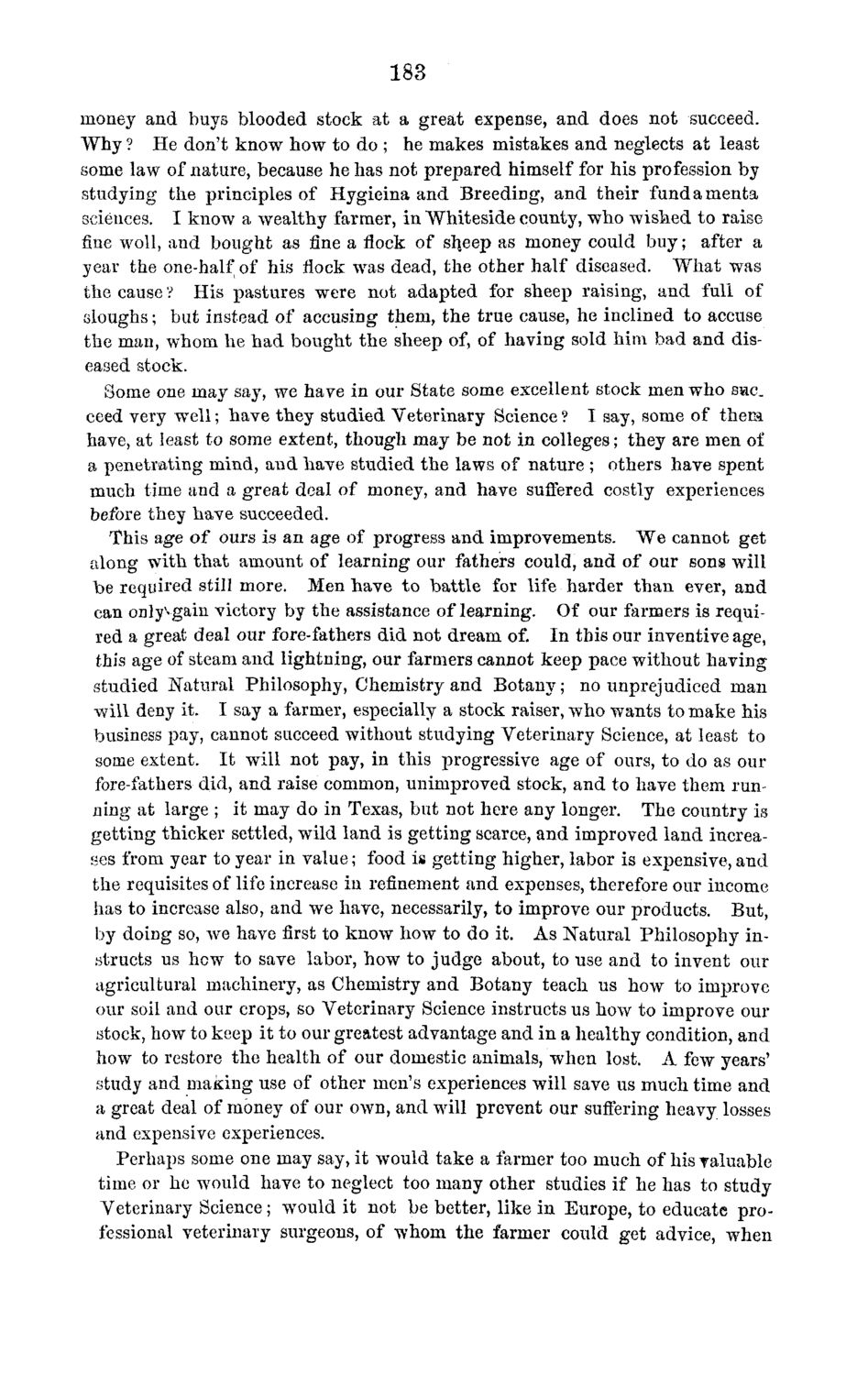| |
| |
Caption: Board of Trustees Minutes - 1870
This is a reduced-resolution page image for fast online browsing.

EXTRACTED TEXT FROM PAGE:
183 money and buys blooded stock at a great expense, and does not succeed. Why ? He don't know how to do ; he makes mistakes and neglects at least some law of nature, because he has not prepared himself for his profession by studying the principles of Hygieina and Breeding, and their fund a m e n t a sciences. I know a wealthy farmer, in Whiteside county, who wished to raise fine woll, and bought as fine a flock of sljeep as money could buy; after a year the one-half of his flock was dead, the other half diseased. W h a t was the cause ? His pastures were not adapted for sheep raising, and full of sloughs; but instead of accusing them, the true cause, he inclined to accuse the man, whom he h a d bought t h e sheep of, of having sold him bad and diseased stock. Some one may say, we have in our State some excellent stock men who sue. ceed very well; have they studied Veterinary Science ? I say, some of thera have, at least to some extent, though may be not in colleges; they are men of a penetrating mind, and have studied the laws of nature ; others have spent much time and a great deal of money, and have suffered costly experiences before they have succeeded. This age of ours is an age of progress and improvements. W e cannot get along with that amount of learning our fathers could, and of our sons will be required still more. Men have to battle for life harder t h a n ever, and can only v gain victory by the assistance of learning. Of our farmers is required a great deal our fore-fathers did not dream of. In this our inventive age, this age of steam and lightning, our farmers cannot keep pace without having studied Natural Philosophy, Chemistry and Botany; no unprejudiced man will deny it. I say a farmer, especially a stock raiser, who wants to make his business pay, cannot succeed without studying Veterinary Science, at least to some extent. I t will not pay, in this progressive age of ours, to do as our fore-fathers did, and raise common, unimproved stock, and to have them running at large ; it may do in Texas, but not here any longer. The country is g e t t i n g thicker settled, wild land is getting scarce, and improved land increases from year to year in value; food is getting higher, labor is expensive, and the requisites of life increase in refinement and expenses, therefore our income has to increase also, and we have, necessarily, to improve our products. But, by doing so, we have first to know how to do it. As Natural Philosophy instructs us hew to save labor, how to j u d g e about, to use and to invent our agricultural machinery, as Chemistry and Botany teach us how to improve our soil and our crops, so Veterinary Science instructs us how to improve our stock, how to keep it to our greatest advantage and in a healthy condition, and how to restore the health of our domestic animals, when lost. A few years' study and making use of other men's experiences will save us much time and a great deal of money of our own, and will prevent our suffering heavy losses and expensive experiences. Perhaps some one may say, it would take a farmer too much of his valuable time or he would have to neglect too many other studies if he has to study Veterinary Science; would it not be better, like in Europe, to educate professional veterinary surgeons, of whom the farmer could get advice, when
| |